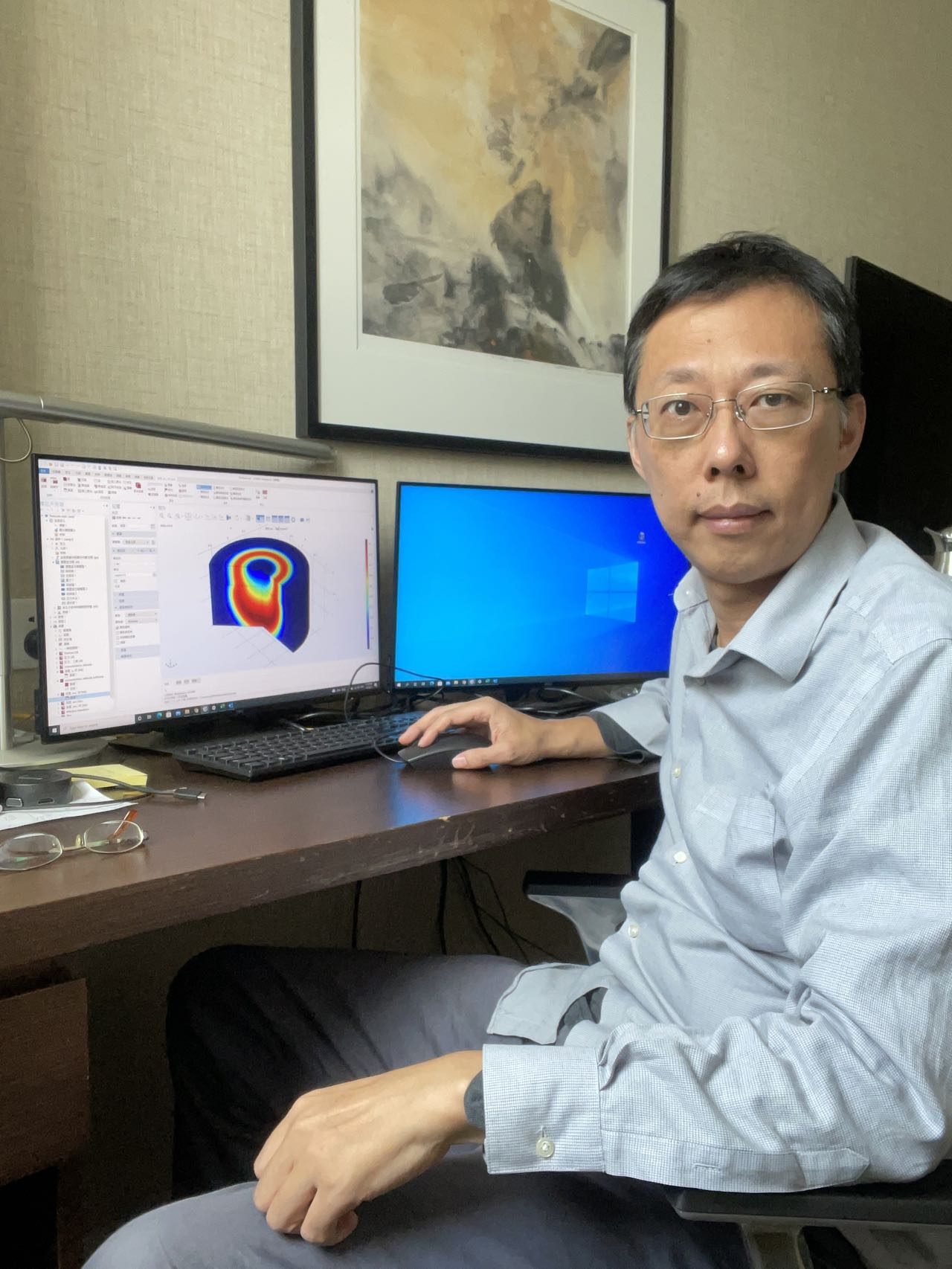Like a river runs through the mountains, so a love of nature flows in the veins of Duke Kunshan Professor Chuanhui Gu. It’s a passion that developed as a child and grew to become the central focus of his career.
Gu, who is an associate professor of environmental sciences, was born and raised in the ancient city of Yangzhou, China, which sits on the north bank of the Yangtze River. In a time before smartphones and home computers he spent much of his childhood and teenage years with friends climbing the hills, wading through the streams and hiking in the countryside of the area, developing a natural curiosity about nature as he did.

At home, his mother Yuzhen Liu, a craftswoman in a lacquerware factory, and father Xueren Gu, a civil servant, instilled in him a work ethic, as well as a love of reading and learning.
“Books and magazines were the only ‘toy’ to me in my childhood, and reading was my fun time growing up,” he says.
His father’s background was in forestry, and he would often bring back a small plant or leaf, explaining to his curious son what species it was.
It was this combination of factors that inspired Gu’s passion for nature and knowledge, and gradually laid the foundation for his future career.

Gu studied environmental science as an undergraduate and then at graduate level, before joining the University of Virginia to take a Ph.D. It is there that he met Professor George Hornberger, who he says, “possessed an innate ability to connect with his students, igniting their passion for science and inspiring them to pursue their dreams.”
Hornberger was a huge influence on the young Gu, and a catalyst to his decision to become a university professor.
“The prospect of sharing knowledge, mentoring students, and conducting impactful research motivated me to pursue an academic career. I want to serve as a role model and make a meaningful impact on young people, just like my professors did to me,” he says.
Hornberger also sparked in Gu a fascination with water resources, the foundation for much of his research, including that which he focuses on at Duke Kunshan – nature-based solutions for water quality.

“Water is a vital resource for all living organisms, and its quality is essential for the well-being of ecosystems and human populations,” says Gu. “Unfortunately, many water bodies suffer from pollution due to various human activities, such as industrial discharge, agriculture runoff, and urban development.”
The nature-based solutions that Gu focuses on offer a sustainable and cost-effective approach to tackling these issues, leveraging the power of natural systems and processes to restore and improve water quality.
“They mimic and enhance natural processes, allowing water to be cleansed and purified through natural filtration, biological degradation, and nutrient cycling,” says Gu.
Gu has been a prolific researcher at Duke Kunshan, involved in myriad projects. They have included an examination of the implementation and effectiveness of riparian buffers – strips of vegetation along the banks of rivers and streams – in water quality management, as well as an investigation of how the ecological and hydrological interactions within natural ecosystems contribute to water quality improvement.

“These research projects allow me to explore different facets of environmental science and contribute to our understanding of the complexities of environmental challenges,” he says.
While Gu has been free to embrace his research passions at Duke Kunshan, he has also found a rewarding teaching environment, due to the university’s emphasis on interdisciplinary study.
“Environmental science is an interdisciplinary field by nature,” he says. “The interdisciplinary approach fosters a dynamic learning environment where students from various disciplines come together to explore complex environmental issues. It encourages critical thinking, collaboration, and innovation.

“Teaching at DKU has reinforced my belief in the power of interdisciplinary research and education to address global challenges effectively. I believe that education should be a transformative experience that transcends the confines of a classroom and empowers students to make a positive impact on the world,” he adds.
Today Gu embraces his interest in nature through his work, but he has not lost that love of the outdoors that characterized much of his youth. When he is not at the university, he is often out hiking, cycling or boating around Kunshan, just as he did in the countryside around Yangzhou many moons ago.
“It allows me to connect with the environment that I study and find inspiration in its beauty,” he says.

